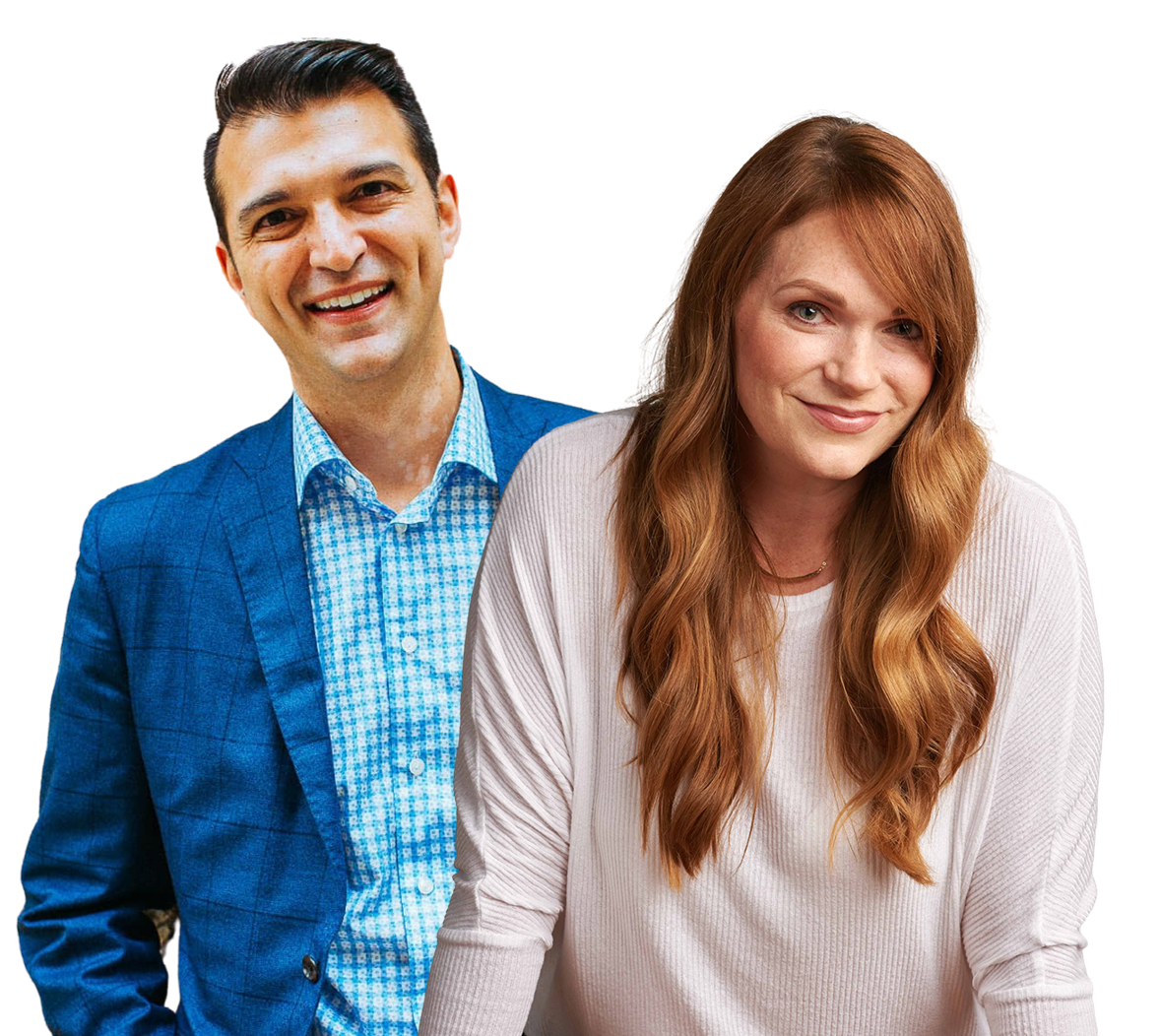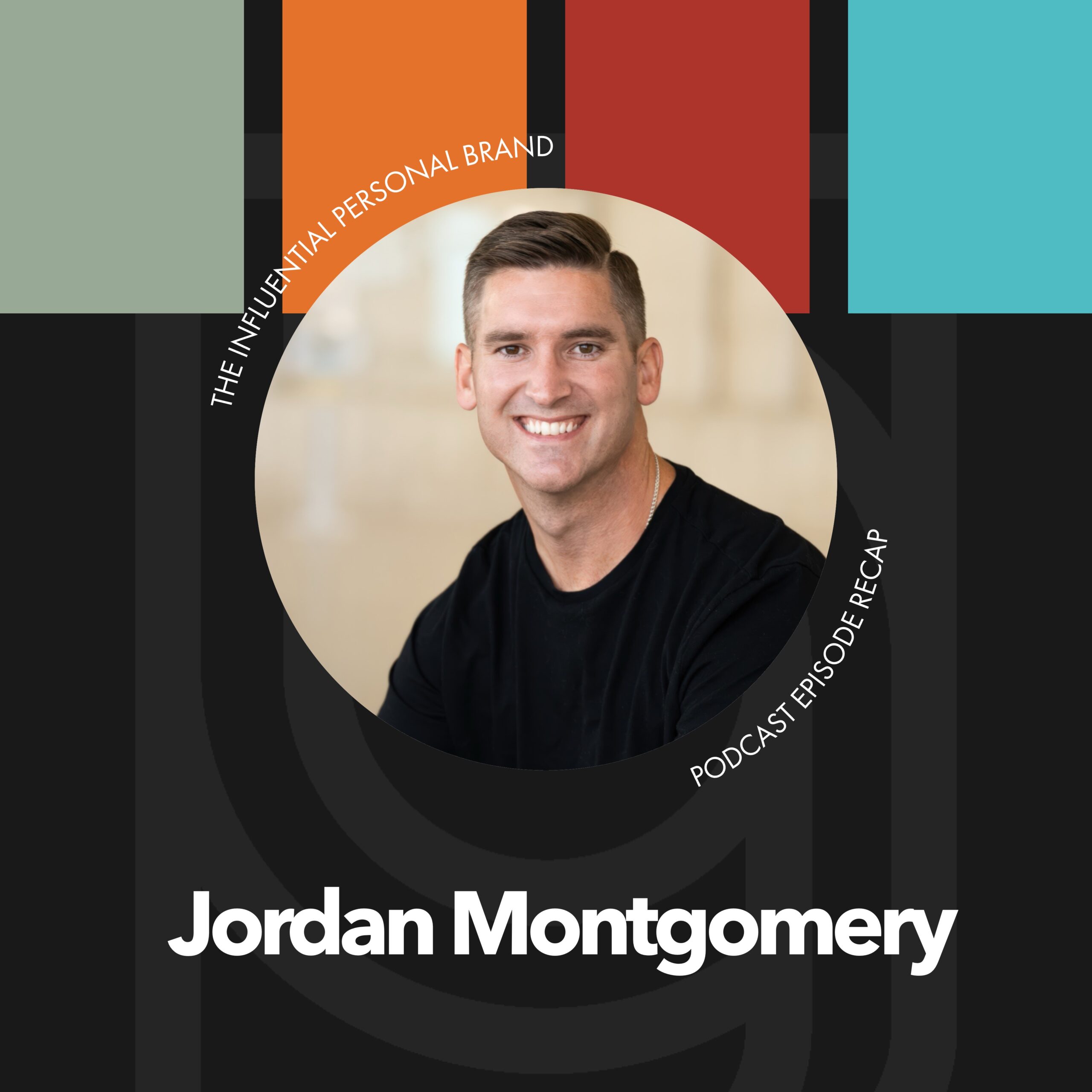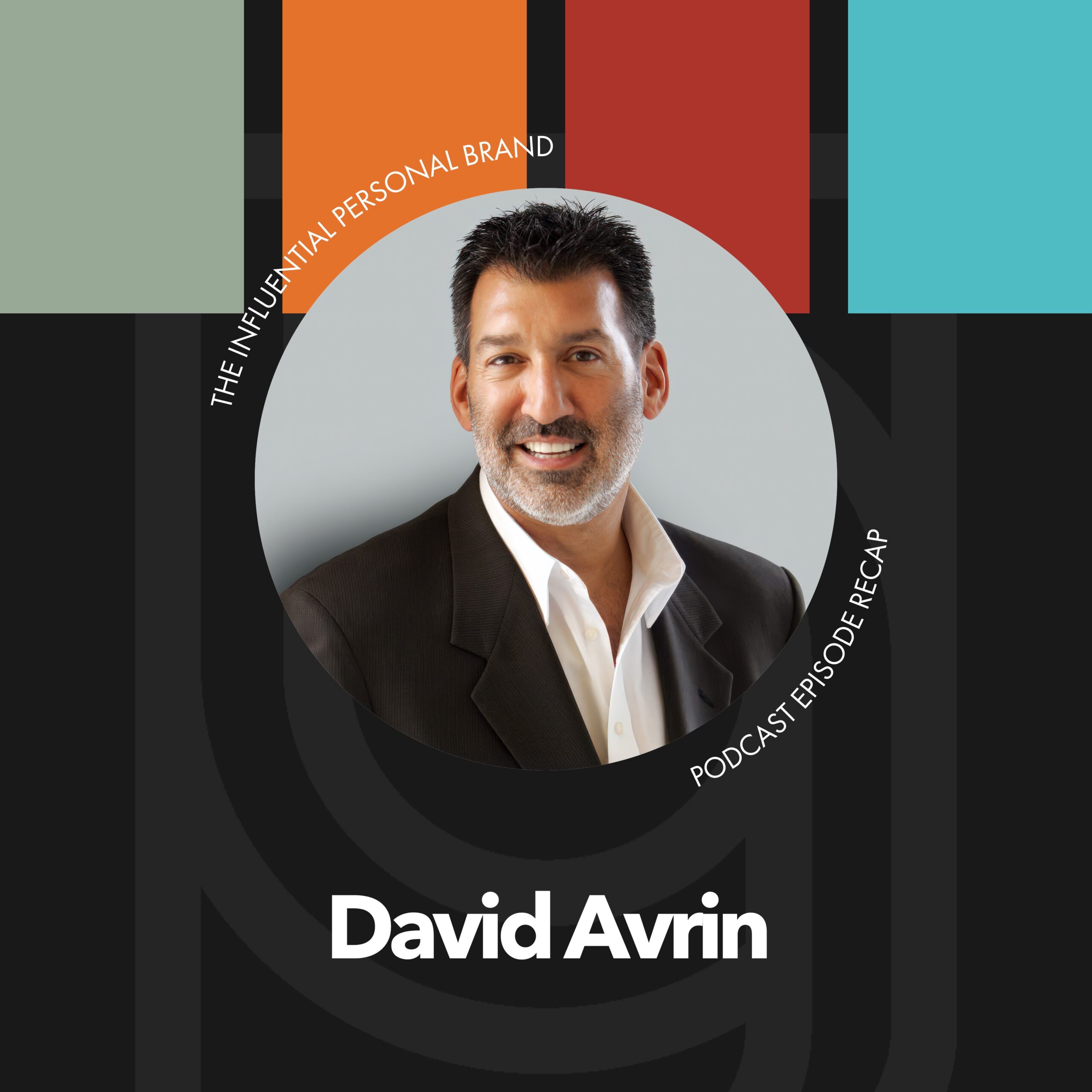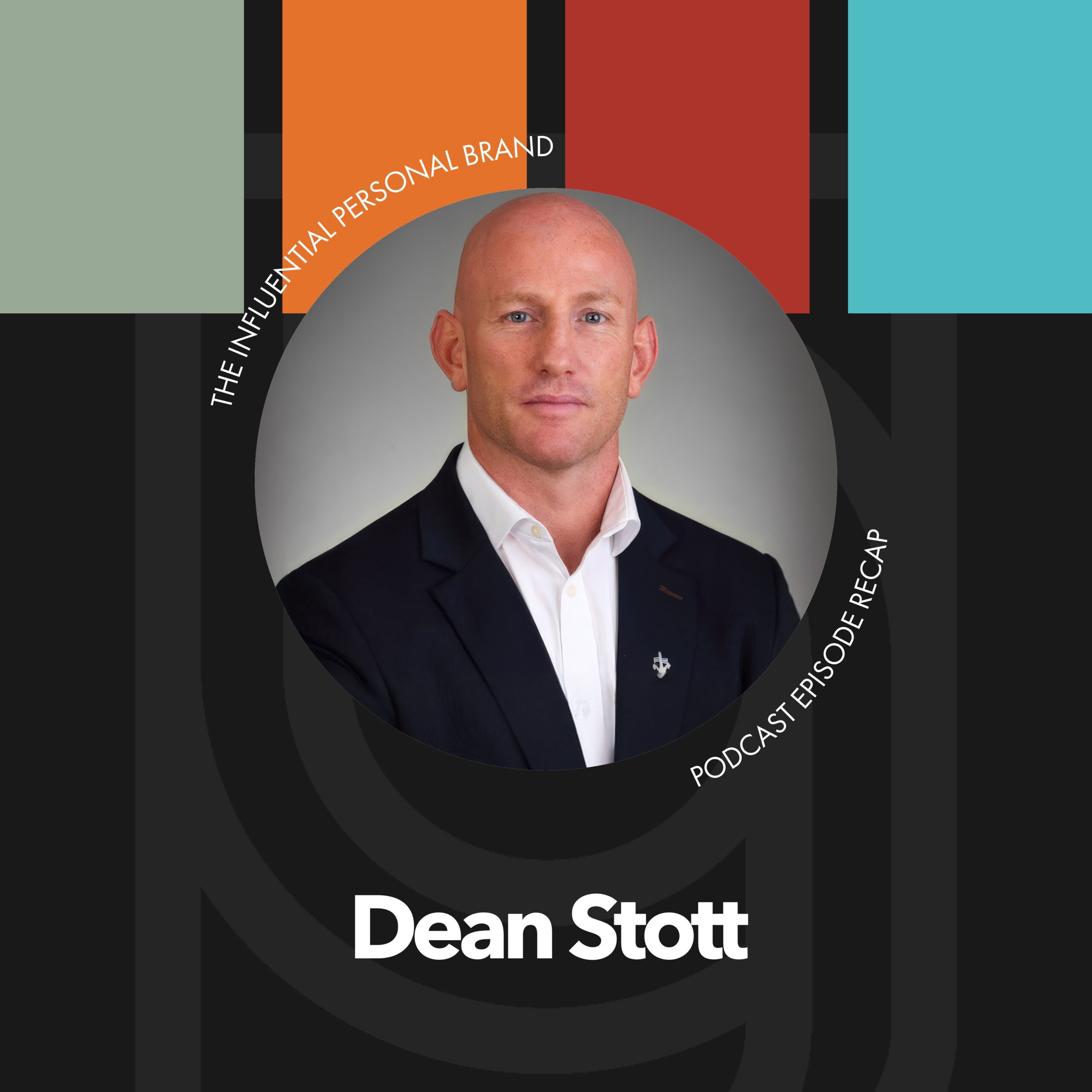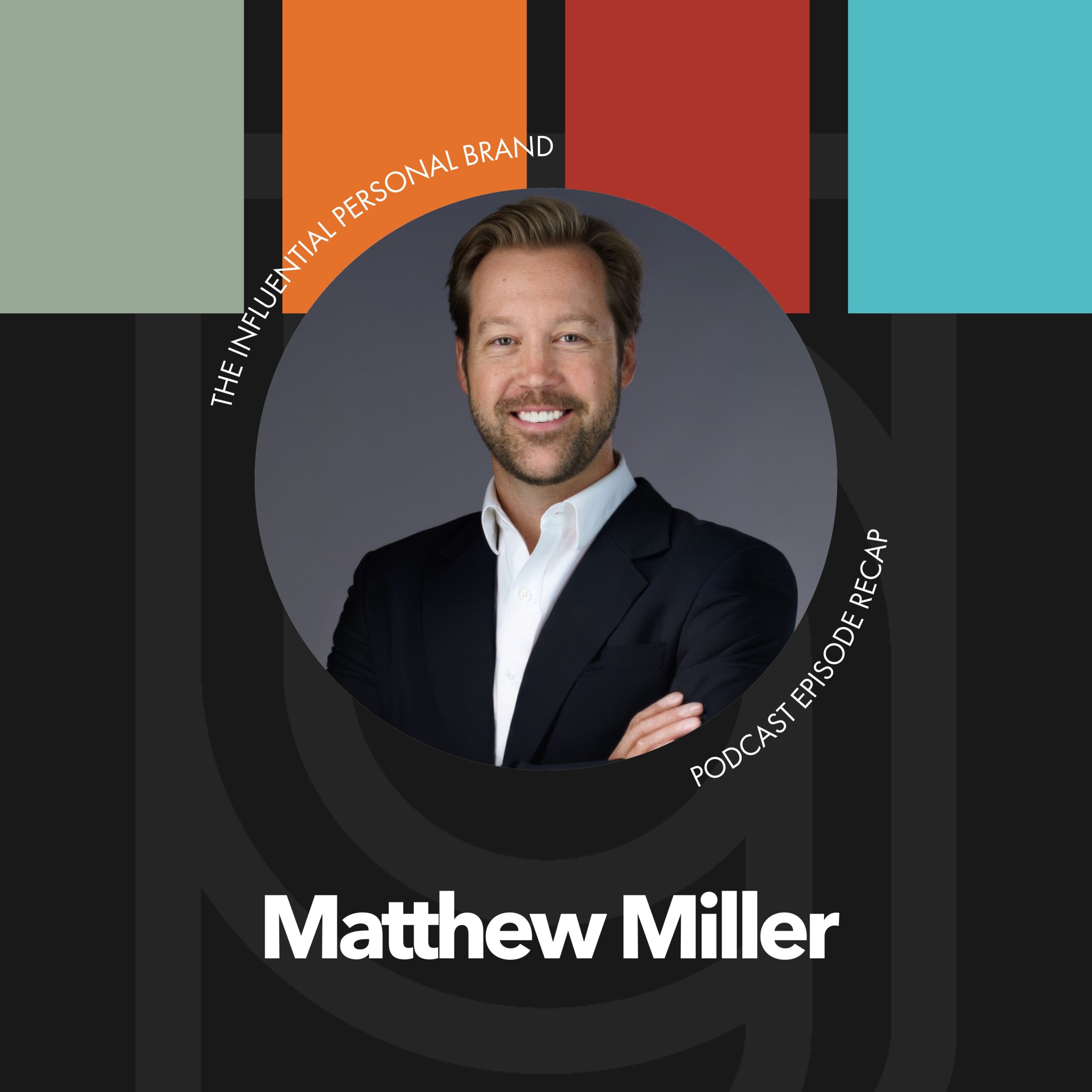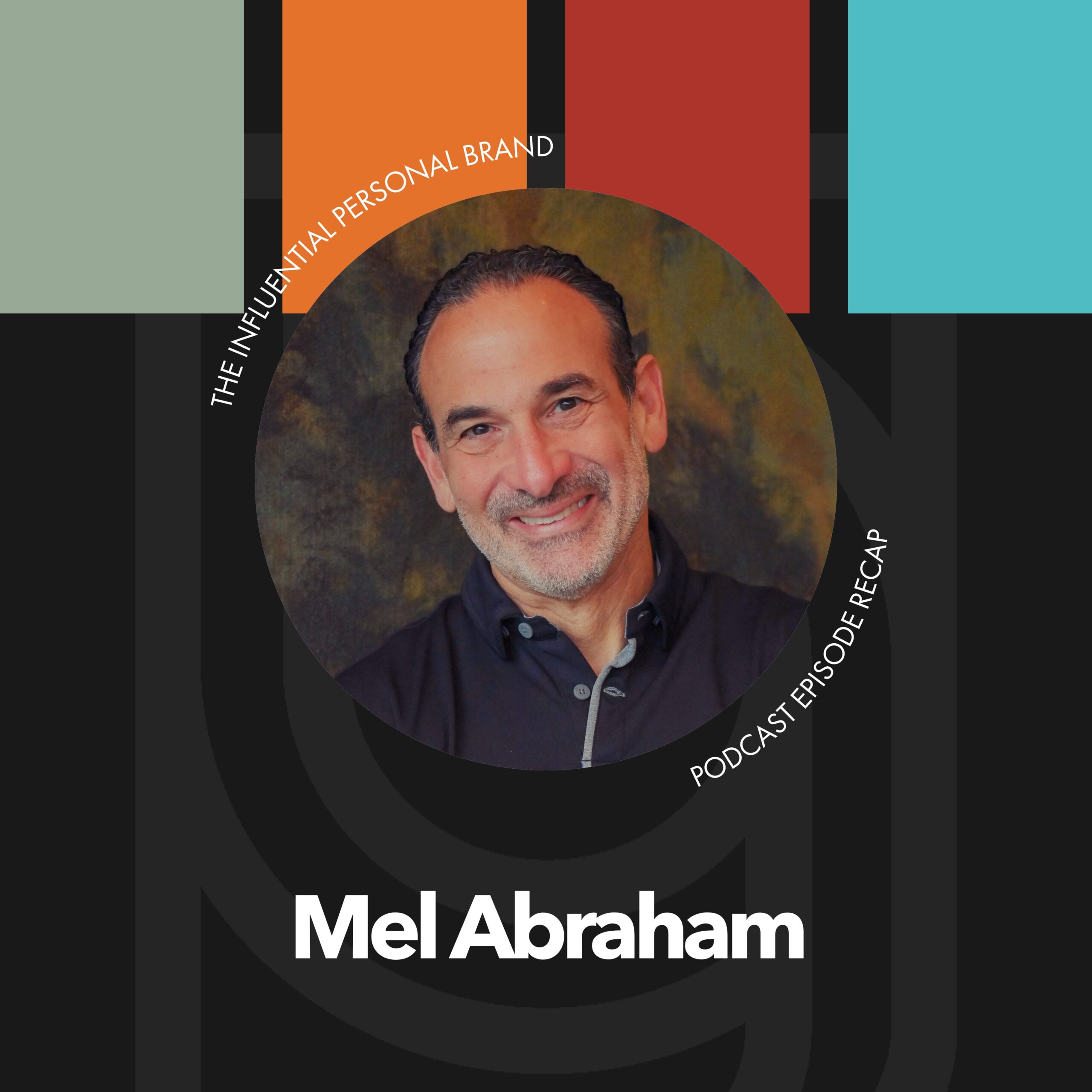RV (00:07):
Hey brand builder, Rory Vaden here. Thank you so much for taking the time to check out this interview as always, it’s our honor to provide it to you for free and wanted to let you know there’s no big sales pitch or anything coming at the end. However, if you are someone who is looking to build and monetize your personal brand, we would love to talk to you and get to know you a little bit and hear about some of your dreams and visions and share with you a little bit about what we’re up to to see if we might be a fit. So if you’re interested in a free strategy call with someone from our team, we would love to hear from you. You can do that at brand builders, group.com/pod call brand builders, group.com/pod call. We hope to talk to you soon.
RV (00:53):
It is truly one of the joys of my career being a podcast host, and there’s many reasons why, but one of the reasons why is because of the fascinating people that I have gotten to meet over the years of, of hosting a podcast. And that was evidenced and, and a great example of it here was with this, this recent edition with Ian Morgan Cron, who is one of the world’s leading thinkers on the Enneagram, right? And he wrote the road back to you, very, very popular book. And you know, I’ve been hosting this podcast co-host of this podcast now for four years. I think about four years, three, three years, maybe three years, we started it. We started it a little bit late when we launched the company. And, and some of you don’t know, but when we sold our our last company that we had, I had been podcasting on that show, which was, had millions of downloads hundreds, hundreds of episodes.
RV (01:54):
And that was several years, maybe, maybe five years, something like that. So I, I have done a lot of interviews and I just, I absolutely love it. And if, if you are one of our mission driven messengers, like if you’re one of our members we always talk about this, that like, it’s, it’s the most amazing platform for meeting people. It’s, it’s like a free way to grow your own personal development. You get to interview these amazing people every, every single week. And it’s just, it’s the most incredible networking tool of all time. But anyways, I, I rant and say all that a little bit about the power of being a podcast host. And I guess just to take a minute and just to say, thank you like, thank, thank you for listening and I mean, thank you for the gift of your attention.
RV (02:36):
Like thank you for the compliment of being here. Thank you for downloading this. Or, you know, if you watch it on our YouTube channel or on our blog, or like wherever you’re listening, like just thank you. I mean, it’s, it’s the most, this is the most amazing, amazing, I mean, well, like getting to be a, I feel the same way about writing and speaking and, you know, my Instagram videos and I just, just think it’s, it’s, it’s the coolest thing ever. So you know, to get to it, to make sure we’re providing value to you. That’s why we’re here. I, I wanna dive into my three big takeaways from this interview with Ian Morgan, Cron which, you know, in a, in a weird way, I was like, ah, I think I should probably be more starstruck about meeting Ian than I am.
RV (03:19):
Cuz I just, I haven’t been a huge engram fan. Like I’m not, it’s not that I’m not a fan. I’m just not, I’m ignorant to it. We have some people internally Elizabeth on our team loves it and she’s really good with it and knows all about it. And you know, we, we took the test. She gave us the test for Christmas a couple years ago. And so it’s really cool. So like it’s a little bit of our culture, but I’ve always been more into like disk and Myers Briggs and KII temperament. And like I have done a bunch, a bunch of these types of things, but anyways really, really powerful insightful conversation with Ian and, and you know, here’s my, my top three takeaways. So number one, which I never really realized was such an important part of the premise of the ideogram was realizing that what is best about us is also what is worst about us?
RV (04:10):
What is best about us is also what is, is worst about us. It is our greatest strength is also our greatest weakness. Our greatest asset is also our greatest liability. The, the thing that we do extremely well is the thing that we can overdo, like we can overuse, right? And so I think I look at myself as an example and I go, okay, what are some of those things? And I, I think this would be the exercise for you, you’re listening and saying, okay, well, what are those things like? What is it about what is, what are the best things about me and how do those things become the worst things about me? And, you know, I think of discipline, which is like a core part of my, my, my personal philosophy, my personal brand, of course the centerpiece component of both my first book take the stairs.
RV (04:58):
And my second book about how to multiply time procrastinating on purpose is just like discipline. And you go, okay, discipline is how I’ve achieved. It’s how I’ve been successful. So that’s the best of me. How does that become the worst of me? Well, it, it makes me righteous. It makes me inflexible, you know, it, it probably makes me dogmatic to some extent and, and, you know, like one of the things I hate is being off schedule, like when there’s a, when there’s a routine and a rhythm and like it gets interrupted. I’m like, it, it, it throws my whole life outta whack. And so I, you know, I see that the other thing is, you know, I think if I had to summarize my entire body of work my entire career, you know, and if you said, what is Rory really an expert on? I would say the psychology of influence, moving people to action.
RV (05:45):
I would, that is what I would say. My, my expertise is the psychology of influence, which specifically stated is the psychology of moving people to action, including ourselves, which is where all the self development work comes from. But also my work in sales my work with leadership teams, and then of course, you know, our work, what we’re doing right now with brand builders, group, teaching people, how to become more influential. So I go, okay, well, what is it about influence? Like if I really understand the psychology of, of, of moving people to action, how does that show up as weakness? It, it shows up as weaknesses going, oh, I might be trying to, to, to move people in a direction that really isn’t fair or what they don’t want to go. And if you heard my last recap edition on, on, it was on the Catherine Gordon interview, Catherine who, John Gordon’s wife, John Gordon, longtime real close buddy of mine, author of the energy bus.
RV (06:43):
And then they wrote the book, relationship grit together, and they, you know, she came and did this whole amazing interview. If you didn’t listen to the episode with her about how to have a better marriage. I shared that in the recap edition that I think my greatest mistake as a husband or one of my greatest mistakes has been that I have not given AJ a safe place to share her feelings and emotions without trying to shape them. Right. Like she shares how she’s feeling. And I tell her why she shouldn’t feel that way. She shares how she’s feeling and I’m telling her why she should think about that different. She shares how she’s feeling and I’m telling her how I don’t really deserve to have her feel that way about something I said, or did gas, gas lighting is apparently is the term for that, which I was I’ve, I’m, that’s a term that I’m new to.
RV (07:39):
But yeah, I, I shared this, you know, pretty emotional moment for for me in, in that last recap edition, talking about that, and then listening to going back and listening to this, reviewing this interview with Ian and going, oh, where is my greatest strength? Also my greatest weakness, where is what is best about me also? What is worse about me? I go, ah, there it is, right? Like my ability to coach, to guide, to see things a different way to bring perspective to, to, to help do that for people is great, except in your marriage, in a moment of vulnerability where someone is sharing their heart and how they’re feeling and going, oh, let me, let me take your heart and tell you why that’s not right or change that that is terrible. Right? So anyways, if you wanna listen to me cry, you can go, hear the full, my, my full, my ad my full admission of guilt in that last recap, but what is it about you?
RV (08:38):
Right? So that’s the, the, to turn this to you, the question would be, what is your greatest strength? How might that be showing up also as your weakness and just being aware of that? So I thought that was, that was insightful for me. And the second thing, which is huge was that all of us have a false origin story. All of us have a false origin story, every single one of us, like we all have a story that we tell ourselves about who we are and why we are the way we are. And it is never true. It is always partially true. It is always based in some level of truth, but it is never accurate. Like it is never fully precise. It is a story. And, and it’s a story that we tell ourselves so many times that we believe it. And then the trick about this is like, this becomes our identity.
RV (09:32):
Our identity for the future is written by the story we tell ourselves about the past. Our identity for the future is written by the story we tell ourselves about our past. When we say the reason I am, why I am, is because of this happened. And because my parents were this way. And because I went to this school and my teacher said that, and the bully did this, and this happened in the economy and this happened in the world and this happened in politics. And like, I, I, I am, I am because of the neighborhood that I lived in and whatever, like that story that we look back and somebody says, how did you get to be how you are? That story is of, of our past is, becomes our identity for the future. And it’s never accurate. Like it’s never a hundred percent accurate.
RV (10:18):
It is always an interpretation of what happened. It is always based on a memory of what happened. It, it is always based upon a, a, a selective monitoring of key elements and components of a, of, of circumstances that we have crafted into a narrative that shapes our life. So why does this matter? It matters because if it’s not serving you, you can just drop it, right? Like, if, if, if you’ve been telling yourself your whole life, you’re not a smart person, because a teacher said that to you, when you were a kid. And most of these stories, we have most of this programming that we have was written when we were very young, like before we were even aware that our brain was a program that was being written, most of the program was written by other people and not by ourselves or, or by ourselves, but subconsciously, right.
RV (11:15):
And so you go, oh, okay, well, I thought I was dumb, or I thought I wasn’t smart. Or I thought I was gonna, you know, money doesn’t grow on trees, or, you know, you can’t, you can’t be successful in your career and have a great family or all of these things, which become, I’m not gonna call ’em limiting beliefs. I’m gonna call them confining beliefs. Right? A limiting belief is negative. I mean, it has the connotation of negative, but I wanna shift, I wanna shift the distinction here to say, it’s, they’re not all negative, but they’re confining. They shape the world in which we live. They sh they shape the world. As you see it, they shape what you believe to be true. Now, if it’s negative, that’s a limiting belief in some ways it’s positive, right? You might have said, man, I’m, I’m athletic.
RV (12:09):
I’m great at remembering people’s names, man. I’m good at sales. I’m good at speaking in front of an audience, I’m a great leader, right? Like there’s certain things that you have told yourself about yourself that are really positive. So they’re confining in a healthy way. Now there could be limitations to those, or there could be impacts on the people around you for those, because they’re the things that you believe to be true. Like we don’t actually believe what is true. We believe what we tell ourselves. Most often, we don’t actually believe what is true. We believe whatever we hear most often, whatever we say most often, whatever we tell ourselves most often, that is what we believe. Which means if, if your current identity stinks, like if your current current identity, isn’t a good one. If you’re not performing at the level, you think you’re capable of in your life or that you wanna perform at in your life, or if you’re not being the person, you know, you were meant to be, if, if you’re not operating at the potential of your, of your calling, if you’re not operating at the potential of your purpose, if you’re not operating at the potential of what you think God made you to be.
RV (13:17):
It’s because you have a negative story from the past that you are carrying into your identity for the future, and you need to drop it. You need to stop it. You need to cut it. You need to leave it and create a new one. You create a new one. All of us have a false origin story. So to the extent that it is serving you keep it to the extent that it is not write yourself a new one, write yourself a new one, write yourself a new one, sister, like get you a new program, get you a new story, tell yourself something different. Say I was this way, but now I’m this way. Proclaim that, repeat it and say it over and over until you believe it because we don’t believe what is true. We believe whatever we tell ourselves most often get yourself a new story.
RV (14:19):
My third takeaway was just his little tip for identifying these negative stories. And this was super practical, super helpful, like super insightful. This was just like so specific. So easy. So clear, just like, oh, you go. Where? Where, how do I identify the negative stories? How do I identify the, the places that I’m not serving myself with my own belief system? It says, it’s simple. Wherever your fears are disproportionate, wherever your fear is disproportionate disproportionate. That’s where you struggle. That’s that’s where there’s the, the, the glitch in your program. That’s where there’s the air in your system is whenever you’re experiencing fear, right? You’re experiencing fear. And it’s, you know, this old saying fear is an acronym. F E a R. It stands for false evidence appearing real. That is what what’s happening, right? Like, think about it this way. Two, two people stand on stage.
RV (15:20):
One person looks out and says, oh my gosh, I’m terrified. I’m not good at speaking. The other person stands on stage and looks out and goes, oh my gosh, this is the greatest moment in my life. Here. I am standing in front of a bunch of people. They’re both true, right? They’re both true for that person. Neither of them are true inherently of the situation. What is true is whatever we tell ourselves most often, what, whatever we’re saying inside of our own head is what’s true. Our own brain is its own echo chamber. And so you go, where are you experiencing fear? Where where is your creativity working in the wrong direction? That’s how I describe fear in my take the stairs book. Fear is your creativity working in the wrong direction. So you’re, you’re going, oh, this isn’t gonna work out. This is gonna fall apart. I don’t like this. I’m not good at this. I can’t do that. I’m not capable of this, blah, blah, blah. Like wherever you at that train is running. That’s where you got a crappy story. That’s where you got a, a broken program. That’s where you got err, bug in your system and you gotta capture that thing. You gotta squash it and you gotta just rewrite a new one. You just gotta rewrite a new one. So wherever you’re experiencing fear, that is where you have an ineffective story.
RV (16:42):
And yet all of us, every single one of us have the opportunity each and every day to rewrite our story, to rewrite our story of the past, to change the narrative that we tell ourselves about why we are the way we are, and also to change the narrative of our future, to tell ourselves what is going to come of us. That is one of the greatest sources of power and also the greatest sources of weakness that all of us have in our own life. You take agency over that. I promise, you’ll see your life. Start to change. I hope this podcast. I hope my, my blogs are our podcasts, our blogs, our free trainings. Our Instagrams are tweets, our Facebooks. I hope they are things that you find encouraging to you to help you write a better program so that you can have a better life. Thanks for being here. We’ll get you next time.



